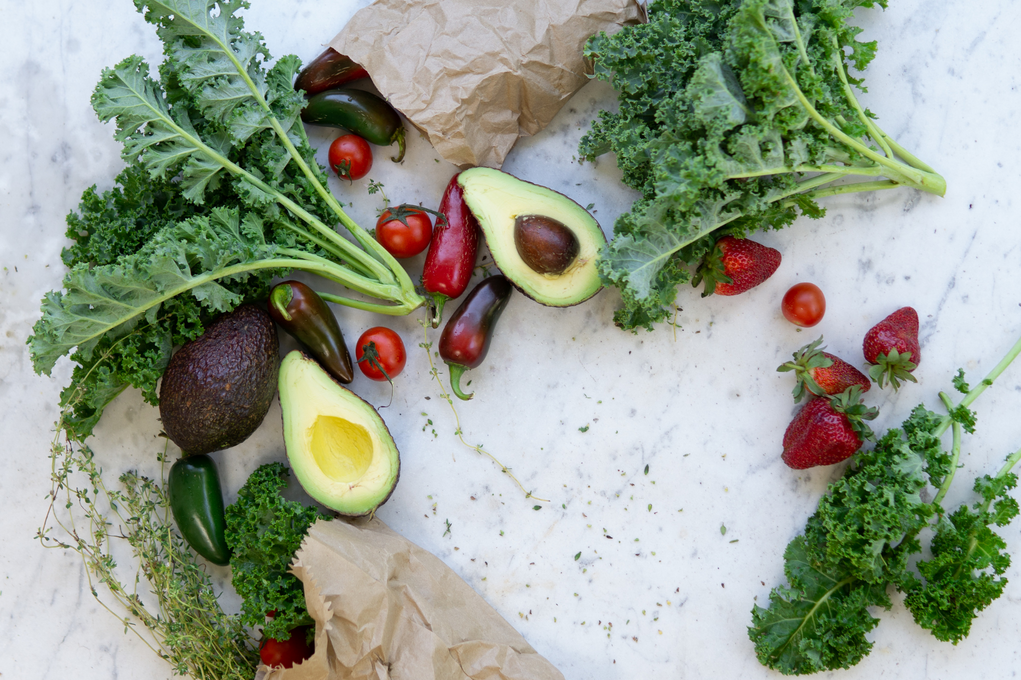Nutrition facts: debunked
18th November 2024 / Health
Nutrition facts: debunked
Jessica S

So often we get bombarded with different nutrition advice, but what's true and what should we completely ignore? Nutritional Therapist Jessica shares all below!
1. ‘Calories in, Calories out’ is the only thing that matters in terms of maintaining a healthy weight
Firstly, not all calories are equal - which is a really important concept!
In order to digest and absorb foods it requires energy, which means the burning of calories. Some foods are harder to break down than others for example, protein takes about 20-30% of its total calories in the digestion process so, a little more simply if you consume 100 calories of protein you will only actually consume roughly 70-80 calories of the original 100, crazy right!. This differs between the different food groups, with carbohydrates using between 5-10% and fats only 0-3%.
Once these macronutrients are used as calories within the body, it’s important to understand that they’re not used at the same rate by everybody. But why? Once important reason, is our hormones. Hormones play a key role within the bodies’ metabolism and the laying down of fat reserves - essential for keeping us healthy. Key hormones include thyroid, which regulates our metabolism, insulin, essential for blood sugar balance, cortisol which is our main stress hormone as well as key sex hormones such oestrogen, progesterone, and testosterone. If these are not in balance they can work against maintaining a healthy weight even with a calorie controlled diet.
Finding a healthy weight requires an abundantly healthy diet of wholefoods, nourishing the body correctly with good macronutrient balance, rather than calorie or dietary restrictions.
2. ‘Diet’ foods help you lose weight.
Sadly, most research overwhelming suggests the opposite is true. So called ‘diet’ foods in their conception initially were reduced fat versions or regular foods, largely because in previous times fat was the ‘enemy’! This often meant replacing fat with sugars. However, in more recent years those sugars have been demonised too and replaced by sweeteners.
When you take fat out of foods they make them less satiating and reduce the idea that you will feel ‘fuller for longer’. Equally, the added sugar commonly found in these foods can disrupt blood sugar balance - often leading to bigger problems, which is often the case for sweeteners too! A diet rich in these foods can leads to cravings and potentially overeating elsewhere in the diet. Even more alarmingly sweeteners are also increasingly being linked with cancer. Often the overall calorific value of the diet version isn’t even significantly difference to the traditional form.
3. Breakfast is the most the important meal of the day

It is actually still the most important meal, but being more scientific about when and what you have for you ‘breaking fast meal’ can really super charge your nutrition goals!
Firstly, making sure you have at least a 12 hour overnight fast benefits everything from your immune system balance to your digestive function. There is potential to extend that benefit further by increasing your fast to somewhere between 14 to 16 hours, for most people. This has been shown in studies to also help with weight management, can improve focus, energy levels, immune function and promote optimal wellbeing. The key is finding your sweet spot and training the body to effectively switch into burning fat from stores.
This is where, what you eat for ‘break-fast’ comes into play. Having a diet high in carbohydrates or more importantly lacking protein and fibre at every meal, makes it harder for blood sugar to be managed optimally and cells to make a metabolic switch to fat burning for energy. Making sure your breakfast, whether it is at 7am or 12pm, contains at least 20g of protein and contains fibre from vegetables and wholegrains will give you sustainable energy and keep you hormonally balanced.
4. Eating meat and dairy is bad for you
In recent years the health benefits of a plant-based diet have become clear. Equally the environmental impact of factory farmed intensive production of meat and dairy is also a worry. However, while both of these are true, for most people having some high quality meat and dairy in the diet will not have a negative effect on health and for most make it easier to get the broad spectrum of nutrients needed.
Meats and dairy not only contain proteins but many nutrients including iron, zinc, B12 and butyric acid to name a few. Many studies are now showing that it is quality of the diet, including lots of fresh fruits and vegetables, wholegrains, healthy fats that give body health benefits. When animal products come from local sustainable sources they can be a healthier choice than substitutes that are often highly processed, high in sugar, preservatives, salt and additives and have hefty carbon and environmental footprints attached to them.
5. You can get all the nutrients you need if you eat a healthy diet.
As a Nutritional Therapist I wish this was true as it would make life so much simpler! Unfortunately, our modern diets and lifestyles mean that there are some nutrients that for the majority of people even with a healthy diet they won’t be getting optimal amounts of….
Magnesium
A Public Health England report in 2014, found that up to 89% of us in the UK don’t eat the daily recommended amount (RDA) Magnesium. It’s a vital mineral that works on many pathways within the body from stress to hormone balance, muscle relaxation to sleep and mood.

Selenium
According to the British Nutrition Foundation, selenium content in plant foods across Europe and in the UK has been falling since 1975, due to soil depletions. Research shows that 50% of women and 25% of men are not getting the minimum levels required to prevent deficiency.

Vitamin D
Deficiency is a widespread problem, due to lack of UV exposure in northern Europe, however more often than not goes undetected. Since the beginning of the pandemic official governmental advice has recommended supplementation for all. Try supplementing with between 1000 i.u. and 3000 i.u per day to top up your levels to optimal.

From The Blog
-

25th February 2025 / Health
Empowering Women’s Health: Key Supplements for Well-being
Women’s health is a lifelong journey, with each stage presenting unique nutritional and wellness needs. From maintaining energy levels to supporting hormonal balance and bone health, the right comb...
Read article -

17th February 2025 / Health
Empowering Women’s Health: Lifestyle Tips and a Key Supplement for Perimenopause and Menopause
NaomiWomen’s health evolves through various life stages, and the transition into perimenopause and menopause brings unique challenges. During these phases, hormonal fluctuations can lead to symptom...
Read article -

10th February 2025 / Health / Products
The Best Foods and Drinks to Help Your Body Recover from Burnout
Burnout is a growing issue in today’s fast-paced work culture, leaving many people feeling exhausted, overwhelmed, and depleted. While rest and self-care are essential, nutrition plays a crucial ro...
Read article



